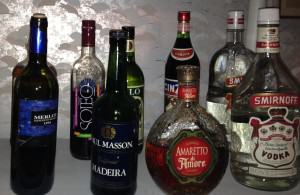
Bars that Serve Drunks Should Be Held Responsible
plaintiffs in precedent-setting, high-stakes appeals across a wide range of substantive areas since 2001. The firm’s attorneys have argued before the Supreme Court of the United States, the United States Courts of Appeal, and state appellate courts, including the supreme courts of more than two dozen states.
States started recognizing dram shop liability 30 years ago, but Maryland is one of four states still holding out. The facts of the underlying case reveal that a man has pled guilty to vehicular manslaughter – he had consumed more than 20 alcoholic drinks at the Dogfish Head Ale House, displayed behavior indicative of being under the influence of alcohol, left the bar, and 45 minutes later, drove his car into the Plaintiff’s family’s car, killing one person and injuring three others. These facts are not in question; rather, it’s the issue of whether Maryland courts recognize dram shop liability.
Thirty years ago, Maryland’s highest court, the Maryland Court of Appeals, decided not to recognize dram shop liability in a case called Felder v. Butler (1981). As CCL VP and Senior Litigation Counsel John Vail writes in his brief, “[t]he Felder court declined to adopt [a] modern, more expansive view of causality” that other courts had already adopted.
The court has since expanded its view on causality. It adopted the “substantial factor” test of proximate causation set out in Section 431 of the Restatement (Second) of Torts (1965) and applied it (to a non-dram shop-related case) in 1992. The substantial factor test is as follows:
The actor’s negligent conduct is a legal cause of harm to another if (a) his conduct is a substantial factor in bringing about the harm, and (b) there is no rule of law relieving the actor from liability because of the manner in which his negligence has resulted in the harm.
Now the court has an opportunity to extend the application of existing common law principles to conclude that dram shops should be held liable when their serving of alcoholic beverages is a cause of harm inflicted on another party.
While there may be some who say the legislative branch should be the body to act on this issue, Vail’s brief provides a significant history of decisions that detail the recognition of dram shop liability by courts across the country. Vail makes an additional simple argument: recognition of dram shop liability “would advance the twin goals of the tort system—compensation of victims and deterrence of misconduct.” CCL’s appeal is supported by the Maryland Association for Justice and MADD. Each organization filed an amicus brief on behalf of the plaintiffs. Opposing counsel’s brief is due in early January and argument is scheduled for March 12th.
